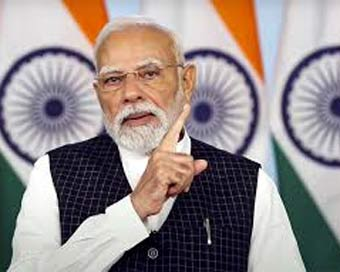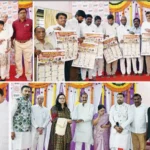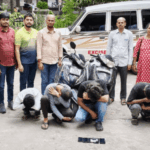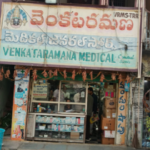
Ahmedabad: Prime Minister Narendra Modi will inaugurate houses built under the Pradhan Mantri Awas Yojana and lay the foundation stone for several projects worth ₹5,477 crore during his two-day visit to Gujarat starting August 25.
During the evening of August 25, after arriving at Ahmedabad Airport, the Prime Minister will participate in a three-kilometer-long roadshow from Naroda to the Nikol area. Approximately one lakh people are expected to be present along the roadshow route and at the event venue in Nikol, where he will inaugurate and lay the foundation stone for various central and state government projects worth ₹5,477 crore. The Prime Minister will inaugurate 1,449 houses and 130 shops constructed under the Pradhan Mantri Awas Yojana (Urban) at a cost of ₹133.42 crore in the Ramapir Tekra slum area of Ahmedabad city. Modi will also lay the foundation stone for the upgrade of the four-lane SP Ring Road around Ahmedabad city. Under this project, a six-lane road will be constructed in two phases with the participation of government and private companies. To ensure speed and safety, it will have controlled access according to expressway standards.
‘Mini Sports Complex’ and Sabarmati and Ahmedabad
Clean drinking water is being provided through the Jal Jeevan Mission under the Ahmedabad Urban Development Authority (AUDA). A water pumping station has been constructed at a cost of ₹27 crore in Daskroi taluka, along with a 23-kilometer-long main pipeline. This project, to be inaugurated by the Prime Minister, will provide clean drinking water to 10 villages in the AUDA area.
The Prime Minister will lay the foundation stone for rainwater drainage systems for the Shela, Manipur, Godhavi, Sanand, and Telav areas. He will also lay the foundation stone for beautification and development works in the Law Garden and Mithakhali areas under the Ahmedabad Municipal Corporation. Additionally, the foundation stone will be laid for the establishment of new water distribution centers in the Thaltej, Naranpura, and Chandkheda wards.

He will also lay the foundation stone for a ‘Mini Sports Complex’ in the Sarkhej ward and the redevelopment of the four-lane railway overbridge between Sabarmati and Ahmedabad stations. Furthermore, the Prime Minister will lay the foundation stone for converting 24-meter and 30-meter-long roads into four-lane roads under TP Scheme numbers 139/C, 141, and 144 in Kalana-Chharodi at a cost of ₹38.25 crore.
The Prime Minister will inaugurate and lay the foundation stone for urban development projects worth ₹281 crore in Gandhinagar. These projects include the construction of two ‘sewage pumping stations’ in TP-24 Randheja, laying a pipeline for rainwater drainage in Pethapur, and constructing a road parallel to the metro rail from Dholakuva to Pancheshwar Circle at a cost of ₹72 crore.
He will also lay the foundation stone for laying water and sewer lines in Koba, Raisan, and Randesan and the renovation of the Bhat-Motera Link Road. The Prime Minister will launch projects worth ₹1,796 crore for Mehsana district and flag off two trains.
The Prime Minister will launch railway projects worth over ₹1,400 crore, which include the doubling of the Mehsana-Palanpur railway line (65 kilometers), the gauge conversion of the Kalol-Kadi-Katosan line (37 kilometers), and the Becharaji-Ranunaj line (40 kilometers). On August 26, he will inaugurate the production line for Maruti Suzuki’s first electric vehicle ‘e-Vitara’ at the company’s Hansalpur plant near Ahmedabad.






